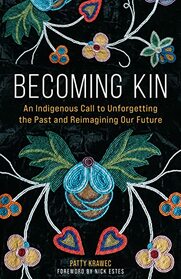In her book, "Becoming Kin: An Indigenous Call to Unforgetting the Past and Reimagining Our Future," Patty Krawec delves into Indigenous history and the settler colonial mindset. The initial five chapters investigate the motivations and justifications behind historical atrocities such as massacres, the horrors of residential schools, and ethnic cleansing. Krawec challenges the idea of the United States as a "nation of immigrants," asserting instead that it is a "nation of settlers." She distinguishes that "Immigrants come to a place and become part of the existing political system... Settler is a way of being here." Settlers perceived the land as unutilized, a view supported by the papal "Doctrine of Discovery," which granted European powers the right to claim newly discovered lands not already owned by Christians.
Indigenous people began to disappear. School teaches about "... brave colonists fighting for freedom" and "Native people who, despite early Thanksgiving friendship, become dangerous and then mysteriously vanish." Krawec advocates for unforgetting the past, asserting that we chose to forget or bury the harms of settler colonialism. By challenging our assumptions and questioning their origins, collective progress can be achieved.
"Nii'kinaaganaa," an Anishinaabe concept centered on universal kinship, forms the foundational principle of this book: the journey to becoming kin. Each chapter provides a suggested assignment, guiding readers who are looking to bond with the Indigenous community and contribute to reconciliation. The book concludes with Krawec's call for collective action, suggesting a number of ways to connect with organizations dedicated to social justice.
I received an advance review copy for free, and I am leaving this review voluntarily.
Indigenous people began to disappear. School teaches about "... brave colonists fighting for freedom" and "Native people who, despite early Thanksgiving friendship, become dangerous and then mysteriously vanish." Krawec advocates for unforgetting the past, asserting that we chose to forget or bury the harms of settler colonialism. By challenging our assumptions and questioning their origins, collective progress can be achieved.
"Nii'kinaaganaa," an Anishinaabe concept centered on universal kinship, forms the foundational principle of this book: the journey to becoming kin. Each chapter provides a suggested assignment, guiding readers who are looking to bond with the Indigenous community and contribute to reconciliation. The book concludes with Krawec's call for collective action, suggesting a number of ways to connect with organizations dedicated to social justice.
I received an advance review copy for free, and I am leaving this review voluntarily.




